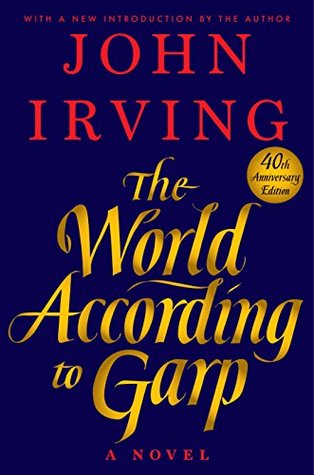More on this book
Community
Kindle Notes & Highlights
The World According to Garp was always a feminist novel, but in the passage of time I’ve become more of a feminist. Why? Because the inequalities and discrimination women faced in the start-up days of the women’s movement haven’t gone away. Because the anti-abortion zealots—their subjecting of women to childbirth, by denying them a choice about abortion, and the ongoing second-class treatment of women by the Roman Catholic Church and the so-called pro-life proponents—haven’t gone away. That’s why. Garp is a political novel, and the politics of sexual intolerance and suppression haven’t gone
...more
Nixon, of course, should never have been elected in the first place. Sound familiar? Now (as of this writing) we have President Trump—a narcissistic vulgarian, a xenophobic blowhard, and a fascist bully.
We live in sexually intolerant times. That’s why this forty-year-old novel isn’t out-of-date, but it should be. The World According to Garp was written in what I believed was a sad time. Isn’t this a sad time, too? Isn’t my country more divided today than when Garp was a work-in-progress?
It’s true that The World According to Garp is a protest novel. Yet, when I was writing it, I never imagined I’d still be protesting forty years later. June 2018
“You only grow by coming to the end of something and by beginning something else.” Even if these so-called endings and beginnings are illusions. Garp did not write faster than anyone else, or more; he simply always worked with the idea of completion in mind.
In modern times, in my opinion, either everything is a moral question or there are no more moral questions. Nowadays, there are no compromises or there are only compromises.
Rape was an outrage even God couldn’t understand.
“Most books you know nothin’s gonna happen,” Jillsy said. “Lawd, you know that. Other books,” she said, “you know just what’s gonna happen, so you don’t have to read them, either. But this book,” Jillsy said, “this book’s so sick you know somethin’s gonna happen, but you can’t imagine what. You got to be sick yourself to imagine what happens in this book,”
“A book feels true when it feels true,” she said to him, impatiently. “A book’s true when you can say, ‘Yeah! That’s just how damn people behave all the time.’ Then you know it’s true,”
Garp would say that the autobiographical basis—if there even was one—was the least interesting level on which to read a novel. He would always say that the art of fiction was the act of imagining truly—was, like any art, a process of selection.
“Fiction has to be better made than life,” Garp wrote.
The governor truly was a crowing, reactionary moron. Among other things, he appeared to believe that poor people should not be helped by the state or federal government, largely because the condition of the poor seemed to the governor of New Hampshire to be a deserved punishment—the just and moral judgment of a Superior Being.
“Why is my life so full of people with impaired speech?” he wrote once. “Or is it only because I’m a writer that I notice all the damaged voices around me?”
DEATH, IT SEEMS,” Garp wrote, “does not like to wait until we are prepared for it. Death is indulgent and enjoys, when it can, a flair for the dramatic.”
“A novelist is a doctor who sees only terminal cases,” Garp said.
“Imagining something is better than remembering something,” Garp wrote.
“Between men and women,” as Jenny Fields once said, “only death is shared equally.”
But in the world according to Garp, we are all terminal cases.


